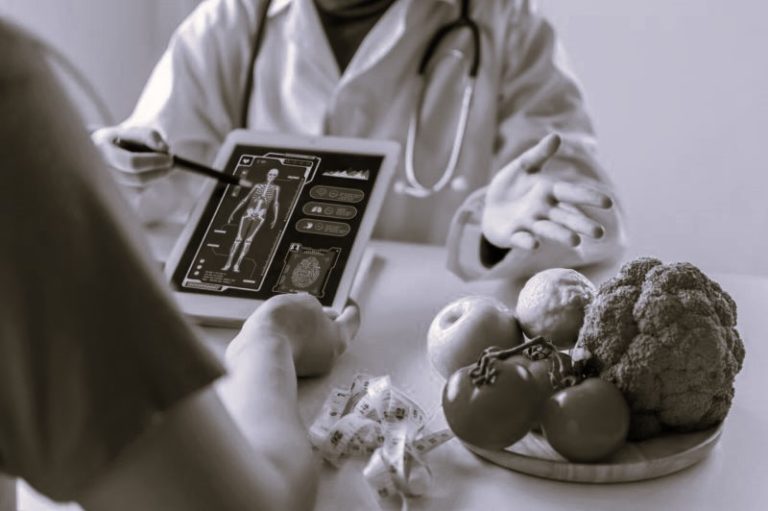

Prebiotic supplements contain fructooligosaccharides (FOS), which are non-digestible dietary fibers that help the gut microbiota grow. The presence of these prebiotics in the digestive tract can reduce the symptoms of IBS, but they should be taken under a doctor’s supervision.
These supplements have a lot of benefits for the body, and they can improve symptoms of IBS. They contain bacteria that can help the body heal itself, and they have anti-inflammatory properties. Prebiotics are not only beneficial for the gut but also help the immune system and brain.
Probiotic supplement manufacturing occurs all over the world and they are available in most countries. You can order them directly from a manufacturer’s website. You can also choose to buy them from a local medical store to relieve IBS. However, make sure you consult a healthcare provider before taking these supplements.
In this article, we are going to discuss the effectiveness of prebiotic supplements in treating IBS.
What Are Prebiotic Supplements?
Probiotic supplements contain special plant fibers that help in the growth of healthy gut bacteria. They make your digestive system function better and prevent IBS symptoms. Both prebiotics and probiotics are important for gut health.
In addition to helping with digestive problems, prebiotic supplements may also help improve brain and heart health. However, it is best to consult a healthcare provider before taking prebiotic supplements. This way, you can ensure your safety.
Prebiotic supplements can be quite expensive. So, if you want to save money, you can eat foods rich in prebiotic fibers. You can find it in foods like oats, bananas, berries, legumes, beans, asparagus, garlic, onions, peas, etc.
Prebiotics Vs. Probiotics – Which Is Better for IBS?
Probiotics are dietary supplements that control the microbiome in the digestive system. They contain live bacteria that help to improve gut health. On the other hand, prebiotics are mostly fibers that humans cannot digest. However, these fibers are beneficial for the good bacteria in your gut. Both supplements are essential for healthy gut function.
Probiotics have been shown to be effective against IBS and can be used to treat symptoms. But there are also negative side effects. In some patients, high levels of probiotics can aggravate symptoms of IBS.
Prebiotics contain a variety of non-viable compounds that help the body digest food. These compounds include fructan, glucomannan, and oligosaccharides. The latter is particularly beneficial in people with IBS because many of them have a slow fermentation profile, causing them to have less gas.
Prebiotics are naturally found in many fruits and vegetables. They act as food for the bacteria that live in the small intestine. Both prebiotics and probiotics supplements promote good bacteria in your gut and help relieve IBS symptoms. However, make sure you take these supplements in low dosages.
The Benefits of Prebiotics for IBS
Here are some benefits of taking prebiotics supplements for IBS treatment.
Improve Digestion
Prebiotics, or live bacteria that live in the gut, may help IBS patients get better digestion. They also help to reduce abdominal pain and flatulence. Studies have shown that taking these supplements can significantly improve the quality of life for people with IBS. As evidence for their effectiveness grows, the key to successful prebiotic therapy is understanding how to use them and how they work with the microbiome.
Change The Gut Bacteria To Good Ones
There is some evidence that prebiotics may affect the microbiota of patients with IBS. They can change the gut bacteria to good ones. However, more research needs to be done to confirm whether these supplements improve symptoms of IBS.
Lower The Gut pH
There are several ways to lower the gut pH of people with IBS. One method is to eat foods that are rich in prebiotics. These foods can be found in some fruits and vegetables, as well as in supplements. However, there are some risks associated with taking them. These foods may increase gas or bloat, so be sure to eat them in moderation.
Boost the Growth of Good Bacteria
Although the use of probiotics for IBS is not yet recommended for everyone, the research suggests it may be useful. Prebiotics can boost the growth of good bacteria and help alleviate IBS symptoms. However, more studies are necessary to determine which type and dosage of probiotics are most beneficial for these patients.
Increase The SCFAs Made By Bacteria
Prebiotic supplements can increase the SCFAs made by gut bacteria. Studies have shown that SCFAs can regulate pH levels and improve the absorption of nutrients such as calcium, magnesium, and iron. They also improve your gut function.
Which Foods Are Prebiotics?
There are certain foods that naturally contain prebiotics. So, before you go out and buy expensive supplements, you can try eating these foods. These fibers are present in different types of fruits, vegetables, and legumes.
Humans are not able to digest these fibers, but they are good for gut bacteria. Here is a list of foods that contain prebiotic fibers.
- Oats
- Legumes and beans
- Peas
- Bananas
- Asparagus
- Berries
- Jerusalem artichokes
- Garlic
- Onions
- Leeks
- Dandelion greens






